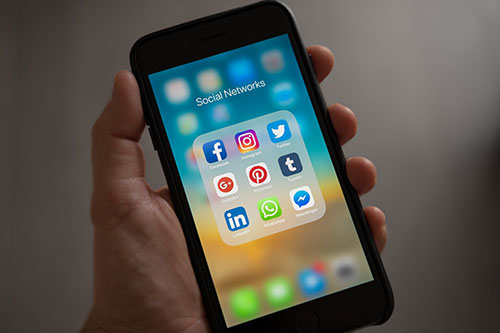Phoning it in: Are cellphones on the golf course becoming a distraction?
 In the everlasting battle to keep course conditions ideal, a new enemy appears: the smartphone.
In the everlasting battle to keep course conditions ideal, a new enemy appears: the smartphone.
Alex Stuedemann returns to his desk at TPC Deere Run, Moline, Ill., to find a collection of cellphones neatly lined up along his desk. One by one crew members step into the superintendent’s office to claim their respective property and explain how the phones got there.
Of course, each employee has come because they were caught breaking the cellphone policy. They have a conversation about the policy and Stuedemann returns the phone to its owner.
Superintendents everywhere are facing similar situations with their employees, and some are forced to create their own policies. According to a survey from the Pew Research Center, 92 percent of adults in the United States own a cellphone, and 68 percent own a smartphone. That means almost every crew member on every golf course in America owns one of these devices.
The cellphone has become a double-edged sword in society. It is capable of connecting users with family and friends, it provides easy access to the news and checks of the weather, and it occupies time when people are bored, all from a device in the palm of a hand. At the same time, such easy access to entertainment has been known to hurt productivity. It’s not uncommon for a superintendent to check on an employee who is supposed to be raking a bunker, rolling a green or mowing a fairway, and instead find them on their phone.
Superintendents may be responsible enough to put down the phone and get to work, but their employees might not share that restraint. Have we reached a point where cellphones are becoming too much of a distraction to crews and assistants?
No-phone-zone
Given the choice, Stuedemann says he would own 15 radios to give out at the start of the day to stay in touch with assistants and crew members, but he has a limited supply. So he’s forced to allow cellphones on the course. His current policy is that crew members can use a cellphone only if there is a family emergency or if they need to contact Stuedemann or one of his assistants about an issue.
“My assistants are being asked to do more hands-on work versus managing, and we don’t have the time to keep cycling across the crew six to seven times a day,” says Stuedemann. “If a crew member has a problem or a flat tire, it’s much easier for them to call me with a cellphone versus them having to walk to find someone.”
Stuedemann acknowledges that allowing the phones is not a perfect solution because he knows the crew still sends texts among themselves when they have a chance. That doesn’t stop Stuedemann from banning the crew from using cellphones to listen to music while working.
“They need to be listening to their equipment, and I think it looks unprofessional for a crew member to be working with earbuds in,” he says.
Jeff Johnson, superintendent at Minneapolis’ Minikahda Club, dealt with an employee who loved his cellphone more than his job. He hired a new assistant who abused the freedom that comes with working on the golf course without a boss monitoring his phone usage.
“He was on it all the time and the crew knew because he didn’t hide it well,” says Johnson. “I’d ask the crew about him, and they’d say ‘Oh yeah, he’s always on his phone.’”
When Johnson says all the time, he means it, including when the former assistant would start his day at 5:30 a.m. “Who are you even texting at that time?” laughs Johnson. It was so bad that after a couple of months he had to part ways with the assistant.
Even after that experience, Johnson has no cellphone policy and trusts his employees to use their phones responsibly on the course. He added that trying to implement a policy would be “ridiculous.”
“Everybody is going to look at their phone, and they’re going to do it when you’re not around,” says Johnson. “It’s pretty much a part of life now to have a phone, and you need to communicate with your wife, girlfriend and friends. If you catch somebody all the time, you just have to talk to them.”
Smart about smart phones
Down at Bentwater Yacht & Country Club in Montgomery, Texas, Superintendent Johnny Walker agrees with Johnson that it’s impossible to prevent crew members and assistants from using cellphones while at work. However, it once was a hot topic among Bentwater’s leadership.
“We’ve had discussions at my facility about banning them or telling the staff they have to give me their cellphone before they go to work,” says Walker. “A cellphone is a part of our daily lives. To take it away from them would be infringing on their rights in today’s society, but we want employees to be smart about using them.”
Despite adopting a looser policy, Walker admits that about 20 percent of the staff probably abuse the rule. But instead of attacking the entire crew, he deals with it individually.
Johnson says it’s simple. He looks at his crew and points to their home lives as the top reason to let them have and use their phones while working.
“These guys are all married and have kids. They need to text their wives to find out who is going to pick up the kids,” says Johnson. “I’m not going to say you can’t talk to her until 3 p.m. — that’s not the reality of life.”
Nancy Flynn, executive director of the ePolicy Institute, Columbus, Ohio, authored the book The e-Policy Handbook: Rules and Best Practices to Safely Manage Your Company’s E-Mail, Blogs, Social Networking, and Other Electronic Communication Tools. In it, she makes some of the following suggestions regarding cellphones.
Who to consult when crafting a unique policy
In crafting a policy that works specifically for your company, make sure you have the right entities involved in piecing the policy together. Managers and human resource representatives should be leading the effort, of course, but since mobile devices grow more and more technically complicated — especially if wired to your company’s email server — don’t forget to include your IT staff.
How to create a cellphone policy: Enforcing the policy
Any workplace policy is useless if not properly enforced. After you’ve solidified your guidelines, here’s how you can make sure they’re followed:
- Keep it updated. You should review your cellphone policy at least once a year and alter accordingly. “Electronic technology evolves so rapidly,” Flynn says. “Not too long ago, all we had to worry about was email and instant messaging.”
- Have training sessions. It might seem a little frivolous at first, but a few training exercises, or even well-enacted demonstrations, could be quite effective in illustrating the type of behavior you expect.
- Explicitly explain disciplinary action. What will be the consequences of violating the rules in your policy? Disciplinary action will vary depending on the level of offense, of course, but be sure to clearly describe it.
- Have every employee review and sign it. Allow employees time to internalize the policy. Include an acknowledgment form that should be signed and returned to you. “It’s just like with any other kind of policy,” says Flynn. “They should agree that they understand the policy and will adhere to it, or follow consequences up to termination.”
Photo: pexels.com/Tracy Le Blanc











